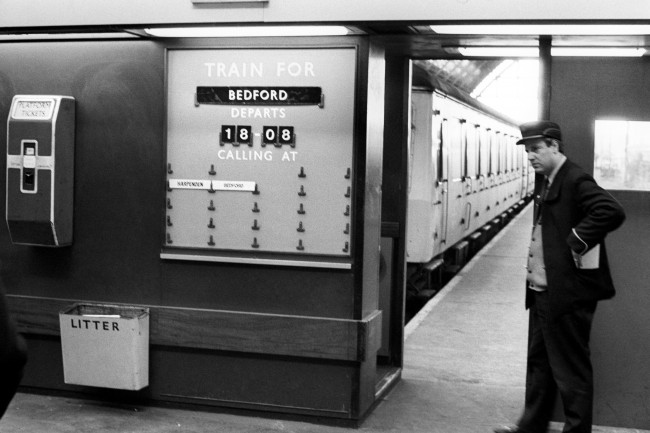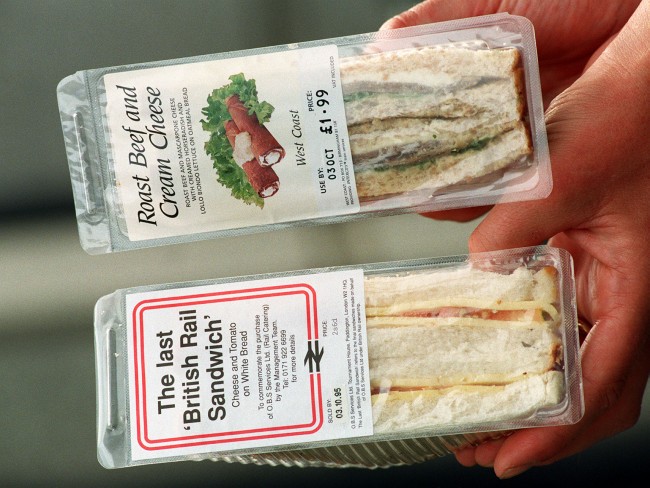Train Fares Rise: Blithering Sutpidity From The Campaign For Better Transport

Transport- Station Staff – Ticket Clipper – London – 1973: A British Rail ticket clipper waits for passengers for the last train to Bedford from St.Pancras at 18.08.
THEY’RE whining about how train fares are going up again: and as usual, they’re managing to get entirely the wrong end of the stick. Here’s their complaint about fares:
Rail fares are rising so quickly that the government will soon be making a profit from the commuting public, campaigners claimed as the new year ushered in higher annual season ticket prices.
According to a report from the consultants Credo, for the Campaign for Better Transport (CBT), by 2018 the fares collected from passengers will cover 103% of railways’ operating costs, compared with 80% in 2009.
There is a very slight problem with this analysis: operating profits are not profits. Operating profits are the costs of goods sold minus the costs of goods purchased. If you thought about Sainsbury’s for example, then it would be the cost of everything they sell minus the costs of buying the things that they sell. And the perceptive will note that those aren’t all the costs of running a supermarket. It’s necessary, for example, to have buildings in which to operate the supermarkets. Vans and trucks to move the stuff around. To pay for advertising to get people to come in and buy the stuff.
Profit profit is the operating profit minus all of those other costs. And with railways the same is true. Operating profits are the fare revenues minus the costs of running the trains directly. To get to real profits we’ve then got to account for the costs of buying the trains, opening new lines, possibly buying new trains in the future: all of the capital costs of running a railroad. And the Leftards would be very pissed off if we just stopped “investing” in the railways, wouldn’t they?

The British Rail sandwich was today (Wed) privatised along with all on-train catering. BR’s catering suppliers, OBS Services, has been privatised in an 11.5 million management buyout deal. Picture shows a Roast Beef and Cream Cheese sandwich, which can now be purchased on the train, alongside an old style British Rail Sandwich. Date: 04/10/1995
And no, it doesn’t make any difference at all that the railways are privatised: whether the government put the money in or not it would still be true that we need to account for those capital costs.
This is also good:
Action for Rail, a trade union-backed campaign, said workers on an average UK salary would spend nearly 14% of their wages on a monthly season ticket commute from St Albans to London, whereas a commuter making comparable journeys in Germany and France would spend about 4%. The figures in Spain and Italy were 3% and 1% respectively, said the group.
That’s because the railways in Germany and France get bigger taxpayer subsidies. Or, as we might put it, everyone has to pay higher taxes so that those who get to live in nice places and commute by train pay lower fares. And where is the fairness in that?
Posted: 2nd, January 2014 | In: Money, Reviews, The Consumer Comment | TrackBack | Permalink


